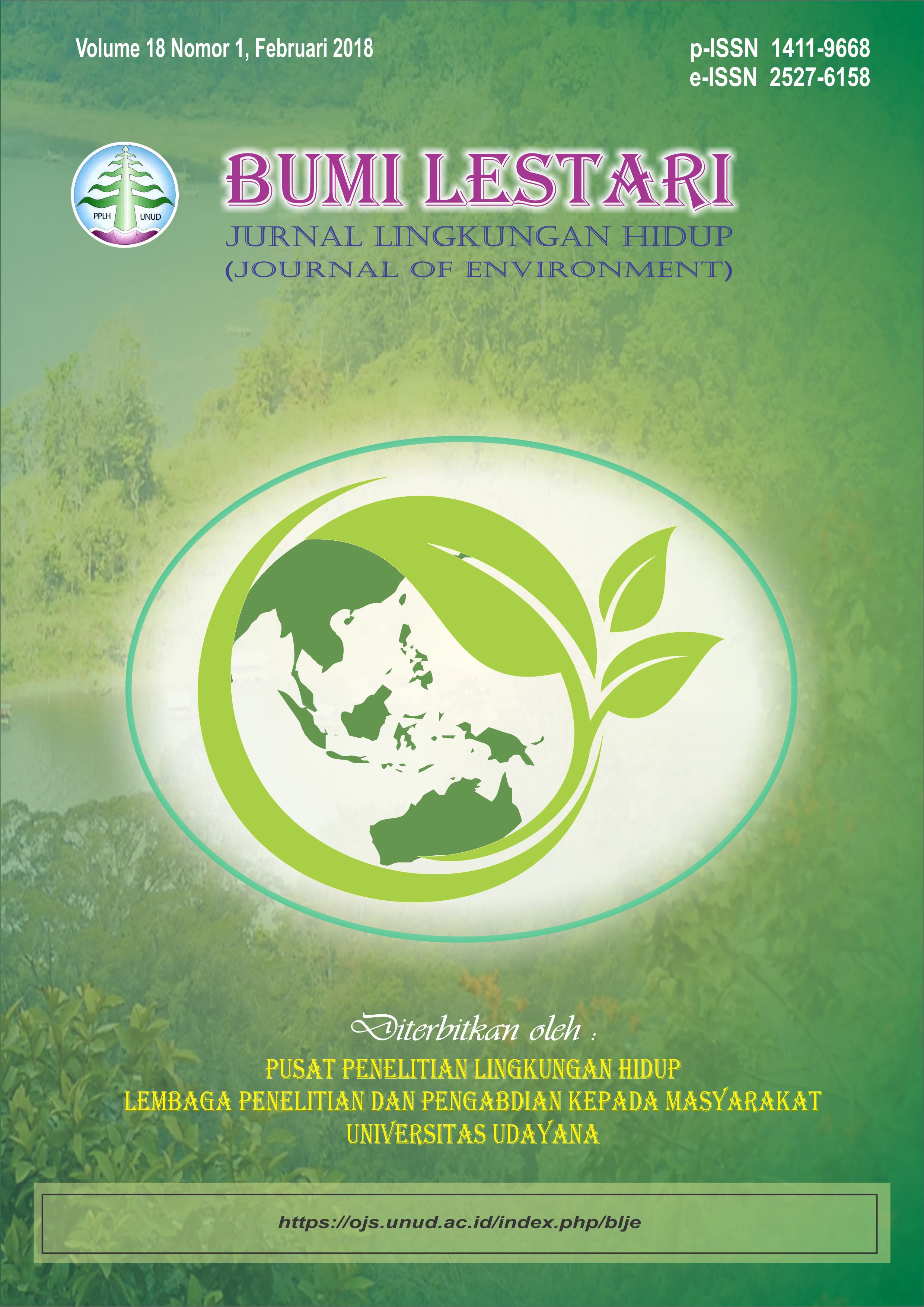Hukum Minimum Liebig - Sebuah Ulasan dan Aplikasi Dalam Biologi Kontemporer
Abstract
Optimum plant growth depends on numerous ecological factors. In relation to this theme, there is an old law called Law of the Minimum Liebig. The postulate discussed the growth of the plant that is determined by the scarcest environmental factors. It is one of the oldest ecological postulate proposed more than one and a half-century ago. It has become one of the most important foundations for agriculture and biology, even the in contemporary biology. This short review will provide the history, principles, development and criticism, and applications in some recent biological sciences, including evolution, conservation, ecological indicator and even climate change.
Downloads
Authors who publish with this journal agree to the following terms:
- All articles published by Bumi Lestari Journal of Environment and Environmental Reseach Center Udayana University are made available under an open access license worldwide immediately. This means everyone has free and unlimited access to the full-text of all articles published in Bumi Lestari Journal of Environment, and everyone is free to re-use the published material given proper accreditation/citation of the original publication. Open access publication is supported by authors' institutes or research funding agency by payment of a comparatively article processing charge for accepted articles (See Author Fees). Bumi Lestari Journal of Environment and Environmental Reseach Center Udayana University publish articles under the Creative Commons Attribution License.
- Authors are able to enter into separate, additional contractual arrangements for the non-exclusive distribution of the journal's published version of the work (e.g., post it to an institutional repository or publish it in a book), with an acknowledgement of its initial publication in this journal.
- Authors are permitted and encouraged to post their work online (e.g., in institutional repositories or on their website) prior to and during the submission process, as it can lead to productive exchanges, as well as earlier and greater citation of published work (See The Effect of Open Access).





